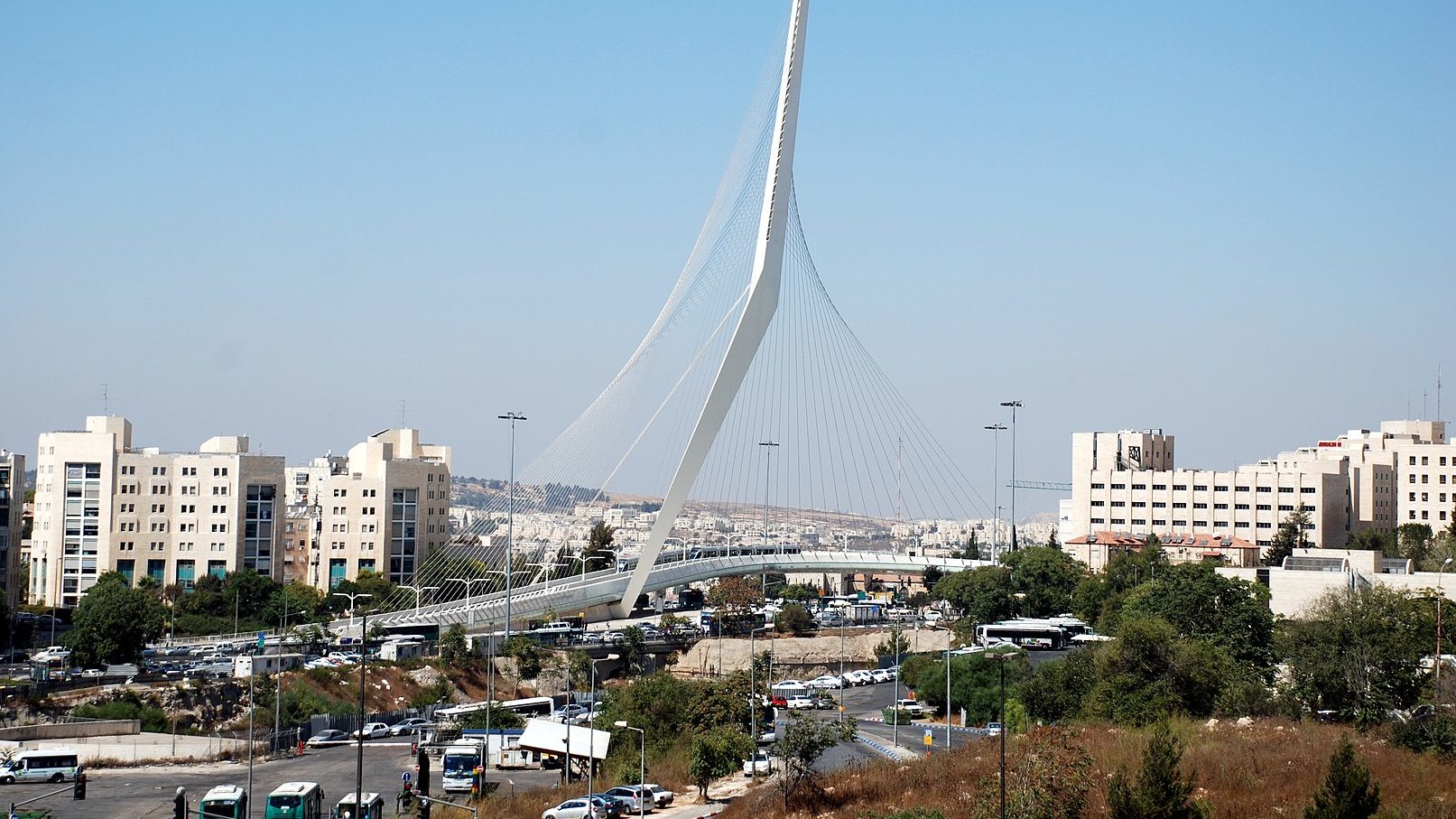Israeli Government to Sanction Ministries That Don’t Relocate to Jerusalem, but City Isn’t Ready for Them
Jerusalem Municipality says offices, light rail must be completed first; Ministries cite COVID-19, lack of state budget as reasons for failure to move.
Israel’s government has decided to sanction ministries that fail to transfer all of their units to the country’s capital. While two of Israel’s Basic Laws – which have quasi-constitutional status – dictate that all government departments and units be located in Jerusalem, and Israeli governments in the past have on more than one occasion decided to act to bring the ministries into compliance, many departments remain situated outside the capital. The Israeli newspaper Haaretz estimated that some 100 governmental departments currently are located outside Jerusalem.
As opposed to past decisions, the proposal approved this week includes set timetables and sanctions for failure to comply. Departments have 120 days to start the process of transferring to Jerusalem unless exempted by a dedicated committee. Otherwise, they will no longer receive funding for office renovations and furniture, and will have to pay rent and property tax both for their office outside Jerusalem, and the unit allocated to them in the city.
Zeev Elkin, minister of Housing and Construction and minister of Jerusalem Affairs and Heritage, said after the decision was approved, “It’s been four years of struggling, during which three governments came and went, but finally we’ve managed it. The government approved today the proposal of the Jerusalem Affairs Ministry under my leadership, which we tried to advance in 2018 but were unfortunately blocked in the government meeting. Finally, a decision with timetables and sanctions that will ensure the relocation of all governmental country-wide departments to Jerusalem. It is time to transform statements into reality. This decision is significant for the city, that will be able to develop economically and draw to it new residents.”
The national units will move to Jerusalem but before that we have to complete preparatory work and that is what we are doing at present: finishing the construction of the light rail, residential construction and, most importantly, building offices to house the units.
An official at the Jerusalem Affairs and Heritage Ministry who is close to the matter told The Media Line, “The problem was that this decision [to move the departments] had already passed in 2007, and there are units that haven’t even approached the planning process, haven’t checked what their needs are when moving to Jerusalem. This is simply because of convenience. One has to understand, you have employees who have been working for twenty years from the same building in Tel Aviv and, all of a sudden, you tell them to move to Jerusalem.”
The official stresses, “The decision doesn’t mean that all government offices will transfer to Jerusalem tomorrow, that is clear to everyone. It’s a process, something that takes time. The estimate is between five and eight years for the process to be complete.” The sanctions, however, will force departments that have been dragging their feet to begin the process.
The Jerusalem Municipality spokesperson said in a statement sent to The Media Line that the government decision “is an excellent decision that joins the decisions of past governments, [such as decision] 1605 from 2014 regarding the transferring of national units, and because of them the units will indeed move.”
At the same time, in a statement to the press, Jerusalem Mayor Moshe Leon said, “The national units will move to Jerusalem but before that, we have to complete preparatory work and that is what we are doing at present: finishing the construction of the light rail, residential construction and, most importantly, building offices to house the units.”
“Factually,” the municipality spokesperson said, “today 95% of the offices in the city are occupied. The mayor, Moshe Leon, is working personally and closely with the relevant ministers and professionals to shorten time frames. But the move will not be in the immediate future.”
The Jerusalem and Heritage Ministry official explained, “The government’s decision is intended to strengthen Jerusalem and position it strategically as a city of governance.” No less important, he notes that the move of government offices is expected to add 10,000 workplaces – directly and indirectly – to the city, and hundreds of millions of shekels to the city coffers.
Israel’s Ministry of Health is one ministry that has several units outside the capital. In a statement to The Media Line, the ministry’s spokesperson said. “The Ministry of Health is acting in accordance with the government decision to transfer its units to Jerusalem. The central cause for delay is the national fight against the coronavirus and the managerial attention that it demanded from the ministry.”
Another such ministry is Israel’s Ministry of Transport. In a statement to The Media Line, ministry spokesperson Avner Ovadia said, “The relocation of the rest of the Transport Ministry’s units to Jerusalem was delayed as a result of the absence of a state budget in recent years that did not allow for funds to be dedicated to the move.”
“The Ministry of Transport has a plan in coordination with the Governmental Housing Division to transfer the units in 2022. The first three units will move to Jerusalem in the first quarter of 2022,” according to Ovadia.
While it is true that Israel has only recently approved a state budget, with the last being approved 3.5 years ago, the government’s decision to relocate the units was first approved in 2007. Needless to say, Israel has not been suffering from the effects of COVID-19 since 2007.


